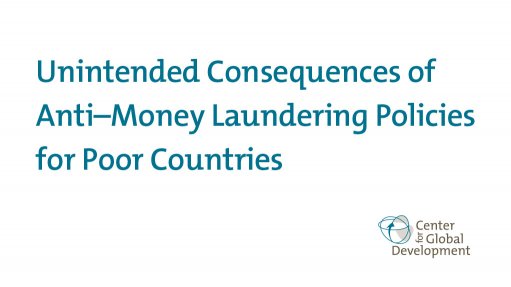
Money laundering, terrorism financing and sanctions violations by individuals, banks and other financial entities are serious offences with significant negative consequences for rich and poor countries alike. Governments have taken important steps to address these offences.
Efforts by international organisations, the US, UK and others to combat money laundering and curb illicit financial flows are a necessary step to increase the safety of the financial system and improve security, both domestically and around the world. But the policies that have been put in place to counter financial crimes may also have unintentional and costly consequences, in particular for people in poor countries.
Those most affected are likely to include the families of migrant workers, small businesses that need to access working capital or trade finance, and recipients of life-saving aid in active-conflict, post-conflict or post-disaster situations. And sometimes, current policies may be self-defeating to the extent that they reduce the transparency of financial flows.
Report by Centre for Global Development